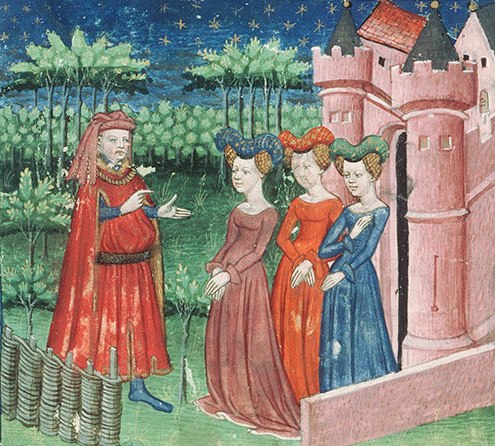Unlike my normal character design prompts, which are pretty open-ended, in The Land of the True Game campaign I’m going to use templates and lenses to give players a pre-set list of character options.
That’s a lot of up-front work for me as the GM, but I want to do it because the setting has quite a complicated lore and mythology and I think the templates will be a way of ensuring that players choose a character design that is compatible with the world, even if they are totally unfamiliar with it.
Of course, I’ll still work with them if they want to go off-template.
Even with templates reducing the complexity for them, I figure they are going to have to know something about the world to start off with. Barring some unexpected future negotiations by the players, I expect them to all start out as gamesmen.
So I have written up the following one-pager that should convey the setting’s flavor as succinctly as possible.
The Setting: A Player’s Backgrounder
The Land of the True Game is a medieval high fantasy setting where magic exists.
The world is divided into those who have talent, gamesmen, and those who have none, pawns. It is said one thousand talents (or “game pieces”) exist, each with a name, characteristic power, and costume.
The field of play includes everything from a major piece like a mind-reading Demon, to the most minor piece: the petty Flugleman, barely better than a pawn. Some pieces are common, like the flying Armiger or the prognosticating Seer. Others are so obscure that no one remembers what they do. What in the world is an Orieiromancer?
Gamesmen are born with one talent; it is genetic and manifests after puberty. Children of gamesmen waiting for their talent live in schooltowns and study the rules. Many things are forbidden, yet they are still sometimes done. Rulebreakers can be reported to the referees, but judgments take years.
After one’s talent is known, it is each gamesman’s destiny to pledge themselves to a more powerful piece. Groups of gamesmen live in demensnes where they rule over and are served by their pawns. Gamesmen have little use for pawnish skills.
Pieces are called to Game when the honor of their demensne is challenged, or to a Game of Two when their personal honor is at risk. Games require talent, and using talent requires power: either from heat or from a sorcerer. Many pawns die from the bitter cold of a Great Game, or they die under the whip, forced to stoke the war ovens.
Gamesmen die too, but in battle. Everyone is lost in play after a few years. But such is the True Game. The world has always been this way, and it will always be this way. Anything else is heresy. These things are as obvious to everyone as a fact of nature. Like the fact that only horses and humans have a backbone.
(This featured image is the 15th century painting Geoffroi de La Tour Landry teaching to his daughters at Wikimedia Commons. It is in the public domain.)


3 Comments